Are you gearing up to renew your technology service contract? It's essential to take a closer look at what you've been getting from your provider and if those services align with your evolving needs. Understanding the nuances of your contract not only ensures continuity but can also uncover opportunities for enhancements. So, let's dive in and explore the key aspects to consider before signing on the dotted line!
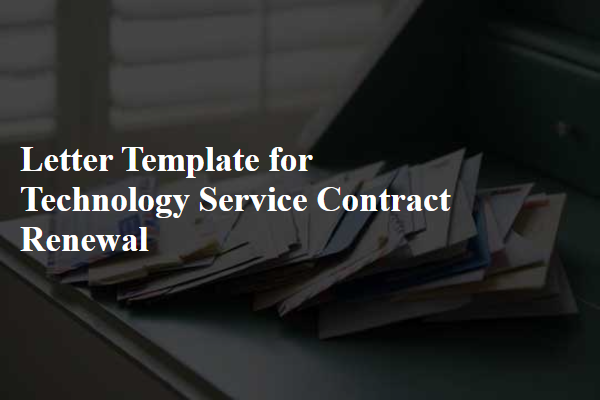
Clear Contract Terms
In technology service contracts, clarity of terms is vital for all parties involved. Specific obligations, such as service levels and customer support parameters, should be detailed to avoid misunderstandings. For instance, a response time of no more than 24 hours for technical issues should be explicitly stated to ensure expectations are aligned. Payment terms, including amounts and due dates, must also be unambiguous to prevent disputes. Additionally, renewal clauses, such as the timeline for notifying parties about continued service, should be outlined clearly to ensure seamless transitions. Defined termination conditions, along with any associated penalties, further clarify risks for both service providers and clients, safeguarding against unforeseen circumstances.
Renewal Pricing Details
Renewal pricing details for technology service contracts often encompass critical elements such as subscription fees, support costs, and any additional service charges. For example, a standard renewal might include an annual fee of $1,200 for software maintenance and a $500 fee for 24/7 technical support. Discounts may apply for multi-year commitments, such as a 10% reduction for a three-year renewal. It is essential to review any changes in service scope, such as upgraded hardware or enhanced features that could affect pricing. Additionally, examining service level agreements (SLAs) is crucial, as they define response times and performance metrics that the service provider must meet. Overall, understanding these components ensures a transparent and informed renewal process for all stakeholders involved.
Service Level Agreements
A technology service contract renewal focuses on ensuring continued support and performance assurances through detailed Service Level Agreements (SLAs). SLAs outline key metrics, including uptime guarantees for services such as cloud hosting, typically set at 99.9%, and response times for technical support requests, usually under two hours for critical issues. The contract elaborates on maintenance schedules, specifying regular updates and system checks to enhance security and functionality, especially in sensitive environments like healthcare or finance. Additionally, escalation procedures are defined, outlining steps for unresolved matters, which can include contact points such as a dedicated account manager or a technical escalation team. Clear terms regarding penalties for service level failures ensure accountability, fostering trust between the service provider and clients in various sectors, from small businesses to large corporations.
Updated Technology Descriptions
The updated technology descriptions enhance the clarity and efficiency of service contracts in the technology sector, encompassing elements like hardware specifications, software capabilities, and support protocols. Updated descriptions may include high-performance server models, such as Dell PowerEdge R740, renowned for their scalability and reliability within enterprise environments. Furthermore, comprehensive software solutions, including Microsoft 365, emphasize collaboration tools with real-time editing features, benefiting organizations in project management and productivity. The incorporation of advanced cybersecurity measures, like firewall systems from Cisco, protects client data by mitigating risks associated with emerging threats. Additionally, clear guidelines regarding service level agreements (SLAs) define response times and resolution metrics, ensuring clients receive timely support and maintenance for their technology systems.
Terms and Conditions Compliance
The technology service contract renewal process involves comprehensively reviewing compliance with existing terms and conditions, ensuring alignment with industry standards and legal requirements. Service providers, operating in sectors like cloud computing or cybersecurity, must adhere to specific regulations, such as the General Data Protection Regulation (GDPR) for data handling practices across European Union member states. Key performance indicators (KPIs) are assessed, monitoring service levels and response times against agreed metrics, which often include 99.9% uptime guarantees. Clients expect clear communication on updates to service level agreements (SLAs), detailed stipulations regarding dispute resolution procedures, and any adjustments to pricing structures reflecting market changes. Regular audits may be scheduled to ensure both parties maintain compliance and safeguard sensitive information throughout the contract duration, paving the way for a transparent and mutually beneficial partnership.

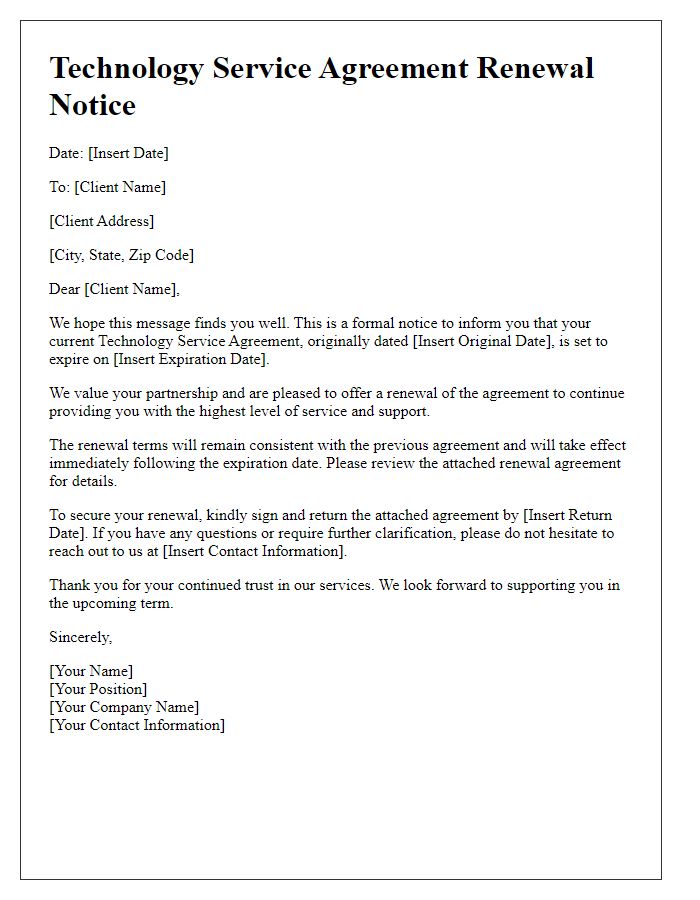
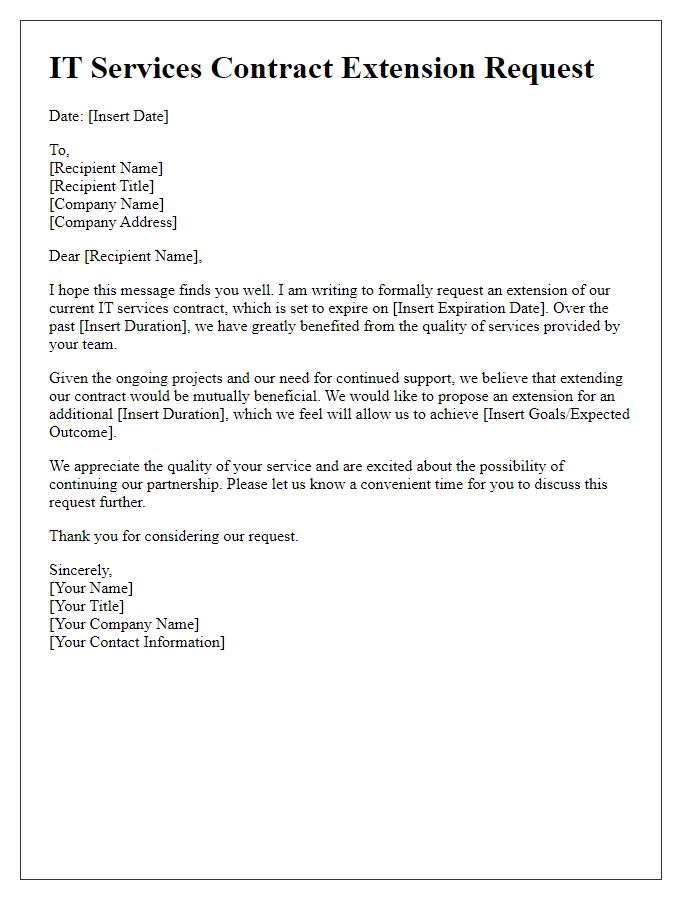
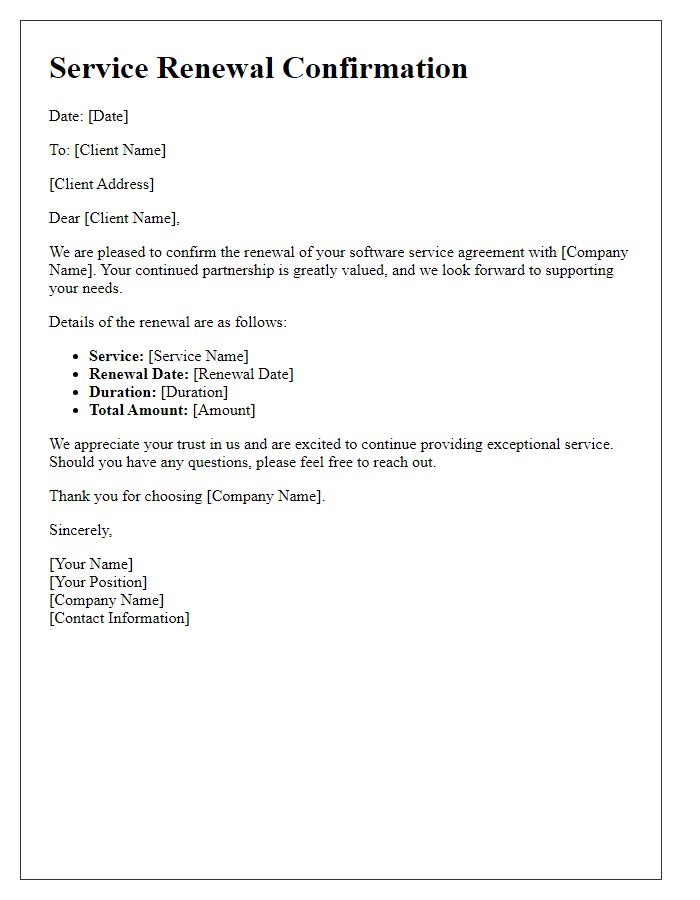
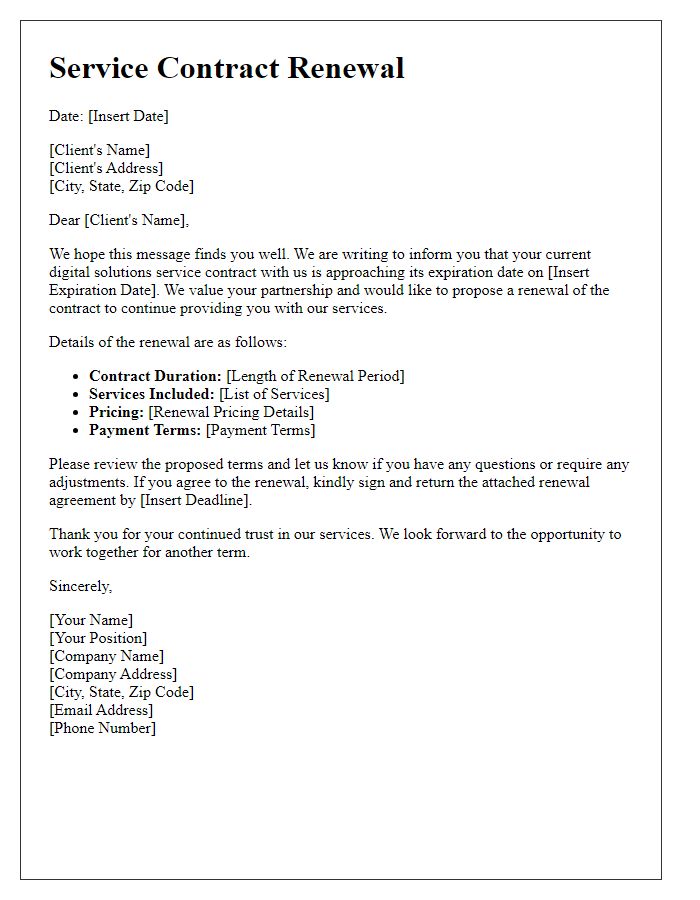
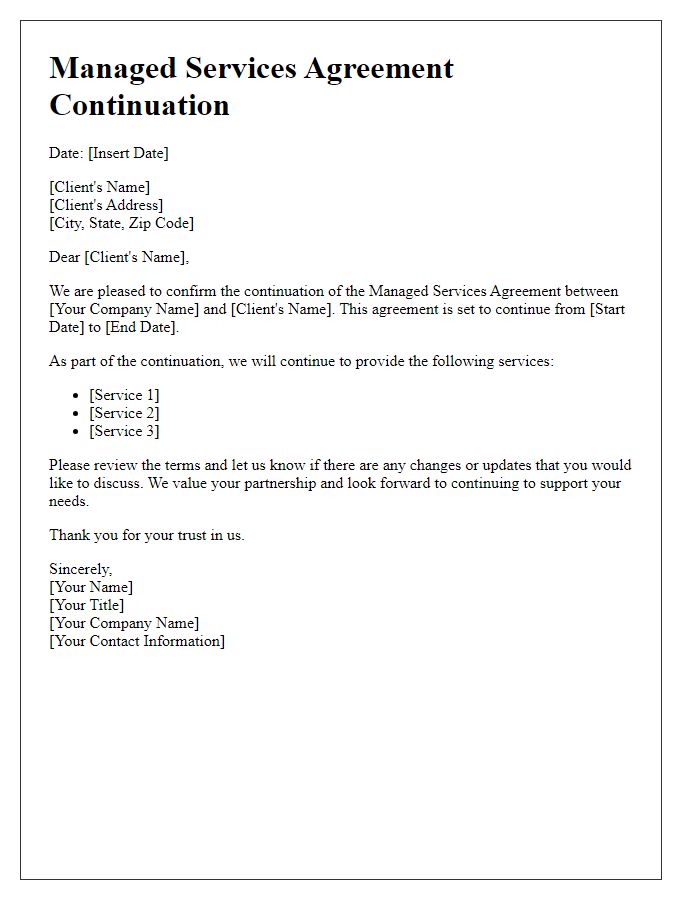
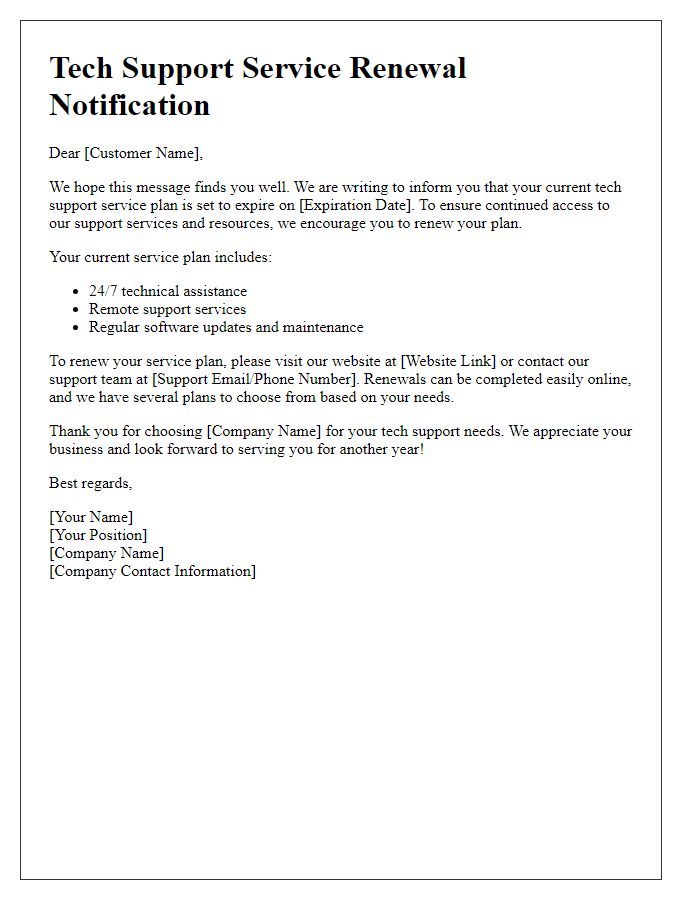
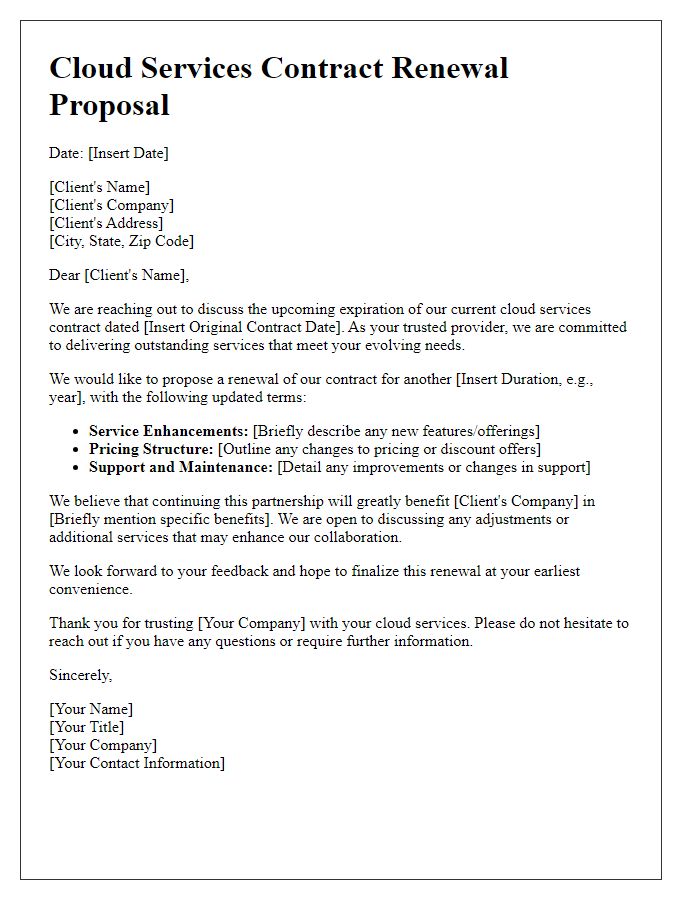
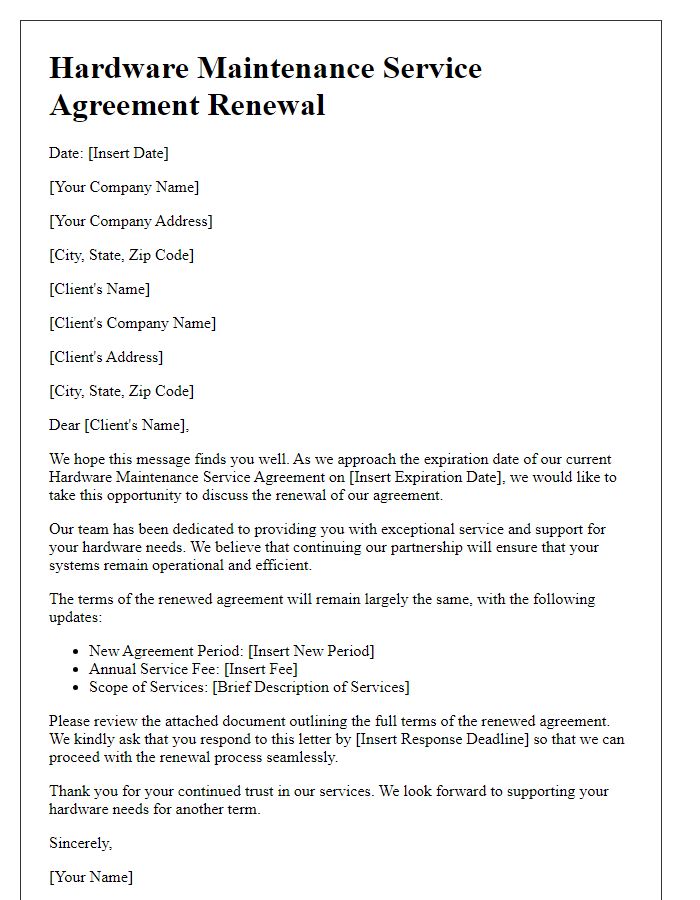
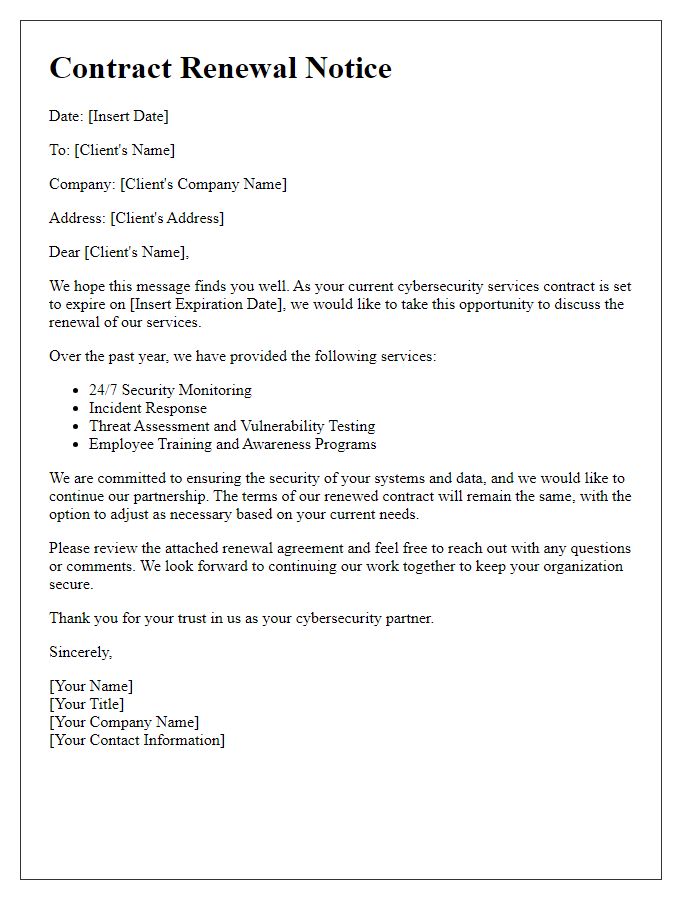
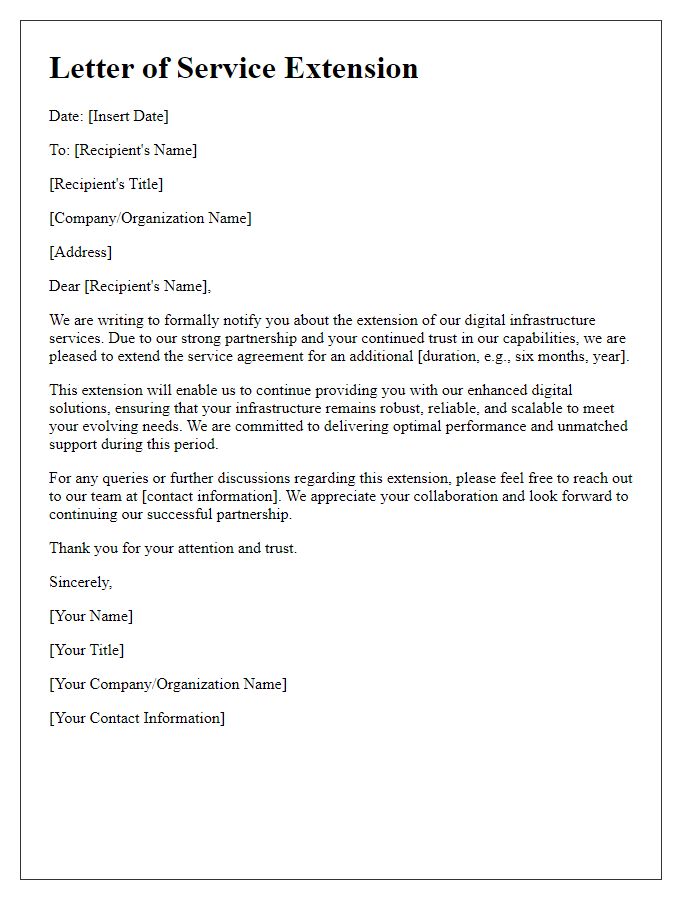

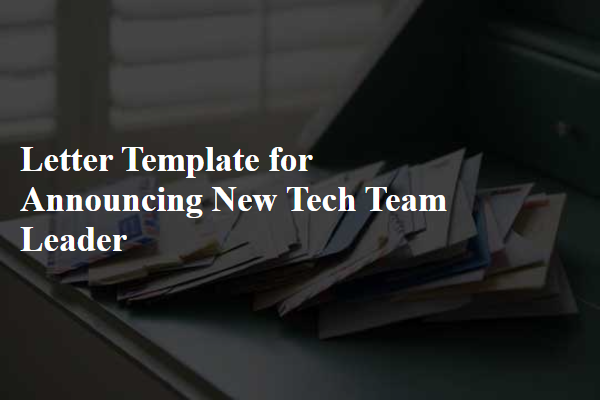
Comments